The specialised programme in Sustainable Cultural Heritage provides in-depth knowledge on sustainable cultural heritage. Participants will develop their competencies in the preservation and preventive conservation of built cultural heritage from climate change influences in the context of sustainability.
The Sustainable Cultural Heritage Program covers the basic knowledge concerning the topics of climate change, impacts on cultural heritage, sustainability and cultural heritage, preventive conservation strategies. The program will develop a new and innovative approach to conserve the built cultural heritage and to integrate it in the economy.
Prevention of the cultural heritage is one of the crucial key for the sustainable development of the country. Being a professional in cultural heritage conservation requires specific techniques, innovative solutions, creative ideas, new skills and open mind. These skills, with their complex relation to sustainability and climate change are knowledge, needed in the sector of culture, in order to achieve sustainable cultural heritage. With the ever-increasing challenges in the climate change impacts, the importance and large benefit of these skills will constantly increase in the future.
All participants will study how to create sustainable cultural heritage, mitigate it from the climate change impacts and contribute to more sustainable regions, especially to:
- Promote and implement principles of sustainability in the cultural heritage;
- Ensure sustainable cultural heritage patterns through complex relations of heritage values, preservation, mitigation, risk management and climate impact;
- Built risk assessment and monitoring based on risk management of heritage sites and damage reporting;
- Built concept for preventive conservation strategies in climate change;
- Take urgent action to combat climate change and its impacts on the cultural heritage;
- Promote contribution of cultural heritage to local development.
Advanced courses on this topic and consultation services can be offered on-demand to professionals who want to develop conservation skills.
The courses offered in this programme are:
- Introduction to Sustainable Development and Cultural Heritage
- Climate Change Risks and Impact on Cultural Heritage
- Valuing and Understanding Threats to Cultural Heritage
- Cultural Heritage as a Resource for Development
- Impact of Climate Change on Built Cultural Heritage
- Preventive Conservation Strategies in the Times of Climate Change
After successful completion of the courses, each participant will write an applied research paper with the supervision of a mentor and co-mentor from the organisation.
This programme includes:
- 6 courses
- Video materials
- Articles
- Downloadable resources
- Applied research project
- Case studies
- Certificate of completion
Who is this programme for?
This course will benefit site management authorities and local authorities managing cultural heritage sites, public authorities who want to explore a new approach to managing cultural heritage, get a better understanding of how to manage the risks on the built cultural heritage and increase sustainability of the heritage. Also, this course will benefit professionals who want to advance in their careers in preservation of the built cultural heritage by using sustainable skills in the field of cultural heritage. This programme will benefit employees in companies, public organisations and non-governmental organisations, who want to explore a more sustainable way to working with the cultural heritage sector.
The course is intended to prepare participants with knowledge and skills to successfully manage sustainable cultural heritage and develop preservation strategies in order to make sustainable cultural heritage sites.
Prospective Participants
- Site management authorities and local authorities representing cultural heritage;
- National authorities responsible for cultural heritage;
- Civil protection authorities;
- Professionals from public organisations, private organisations and NGOs working in the field of cultural heritage;
- Country focal points for risk management of cultural heritage.
Pre-requisites
- Advance understanding of cultural heritage;
- Work experience is recommended;
- Willingness to learn and passion for sustainable cultural heritage.
Upon successful completion of this programme, participants will develop their preservation skills and achieve the following learning objectives:
- Learn and apply the concept of sustainability aspects and their interlinkages with cultural heritage and climate change.
- Apply cultural heritage management from the life cycle perspective.
- Gain an understanding of complex relations between cultural heritage values, preservation, mitigation, risk management and climate impact.
- Analyse the basic principles of climate change policy and climate change projections for the near and fast future.
- Examine climate data for a specific site with a relevant accuracy for choosing the most important climate change factors for cultural heritage.
- Evaluate the damage to cultural heritage caused by different climate parameters.
- Learn and determine the contribution of cultural heritage to local development.
- Apply the concept for preventive conservation strategies in climate change.
- Discuss different climate-related damages to the cultural heritage and preventive conservation climate monitoring on cultural heritage.
- Estimate the importance of climate risk assessment on the cultural heritage.
- Learn the mitigation of climate change and the most important impacts of climate change on cultural heritage.
- Gain a knowledge in cultural heritage values and impacts on them, using the Nara grid evaluation system for CH valuing.
- Apply the risk assessment based on risk management at heritage sites and damage reporting on a case study.
- Conclude the existing and possible approaches in sustainable preservation and mitigation strategies to mitigate the climate change on cultural heritage.
- Apply the knowledge to a case study with preventive conservation strategies relevant to their organisations.
Skills you will gain
Preservation skills, Critical thinking, Problem solving, Analytic thinking.
Duration:
6 courses
Self-study and assignments:
6 months
Certificate:
Specialisation in Sustainable Cultural Heritage
Type format:
Blended
Level:
Advanced
Language:
Macedonian | English
Education keywords
Climate ChangesConservationCultural HeritagePreservationSustainability


